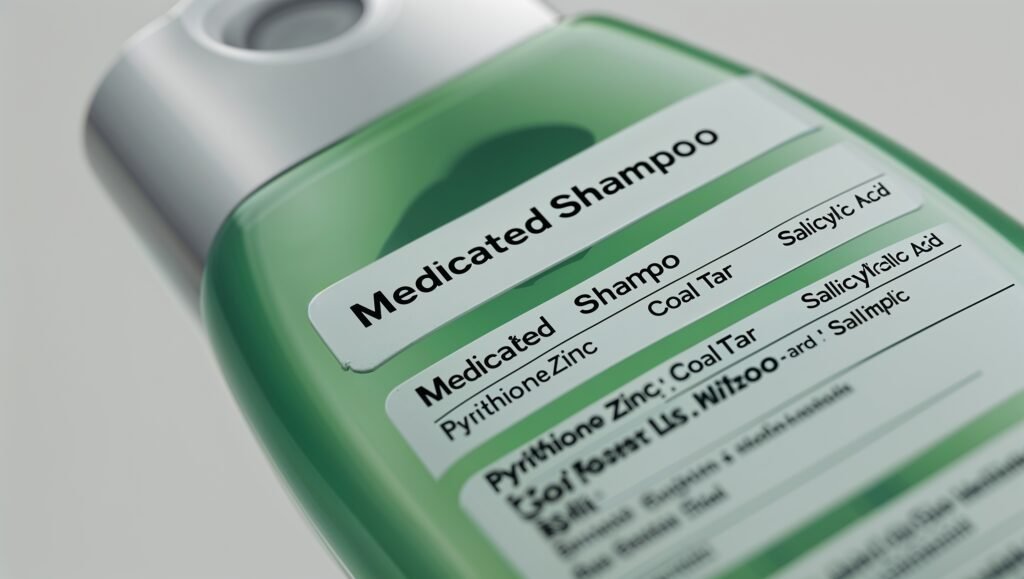As a pet parent and grooming enthusiast, I’ve spent countless hours researching and testing different pet shampoos. Just last week, my Golden Retriever Max rolled in something unspeakably smelly at the dog park, sending me into another deep dive into the world of pet cleansers. If you’re standing in the pet store aisle feeling overwhelmed by the choices between natural and medicated shampoos, you’re not alone.
Understanding Your Pet’s Bathing Needs
Before we dive into the natural versus medicated debate, let’s address a fundamental question: How often should you bathe your pet? The answer isn’t one-size-fits-all. Your furry friend’s bathing schedule depends on several factors:
- Coat type and length
- Activity level and outdoor exposure
- Skin conditions
- Overall health
- Seasonal changes
As a general rule, most dogs need a bath every 4-8 weeks, but your vet might recommend a different schedule based on your pet’s specific needs.
Natural Pet Shampoos: Back to Basics
What Makes a Shampoo “Natural”?
Natural pet shampoos typically contain ingredients you can pronounce and recognize, such as:
- Oatmeal
- Aloe vera
- Coconut oil
- Chamomile
- Essential oils
- Plant-based cleansers
Take my favorite pick, the Isle of Dogs Silky Oatmeal Shampoo, for example. Its combination of coconut and jojoba oils with oatmeal creates a gentle yet effective cleansing experience.
Benefits of Natural Shampoos
- Gentle on sensitive skin
- Environmentally friendly
- Less likely to cause allergic reactions
- Often include natural moisturizers
- Pleasant, non-artificial fragrances
Best Natural Shampoo Picks
| Shampoo Name | Key Ingredients | Best For |
|---|---|---|
| Earthbath Oatmeal and Aloe | Oatmeal, Aloe Vera | Sensitive Skin |
| Buddy Wash Lavender & Mint | Lavender, Mint, Chamomile | General Use |
| HEMPZ Creamy Citrus Orange and Red Raspberry | Hemp Seed Oil, Natural Extracts | Hydration |
Medicated Shampoos: When Nature Needs a Boost
Sometimes, our pets need more than just a basic cleanse. That’s where medicated shampoos come in.
When to Choose Medicated Shampoos
Consider a medicated option if your pet has:
- Persistent skin infections
- Severe allergies
- Parasitic infections
- Chronic skin conditions
- Veterinarian recommendations
Common Active Ingredients in Medicated Shampoos
- Chlorhexidine (antibacterial)
- Ketoconazole (antifungal)
- Benzoyl peroxide (for seborrhea)
- Salicylic acid (for scaling)
- Sulfur (anti-parasitic)

Making the Right Choice: A Decision Guide
Consider These Factors:
- Current Skin Condition
Is your pet’s skin healthy, or are there ongoing issues? - Veterinary Input
Has your vet recommended specific ingredients or treatments? - Coat Type
Different coats have different needs:
- Short coat: Generally needs less intensive cleaning
- Long coat: May require additional conditioning
- Double coat: Needs products that won’t strip natural oils
- Environmental Factors
Consider your pet’s lifestyle and exposure to:
- Outdoor activities
- Swimming
- Urban environments
Product Recommendations Based on Specific Needs
| Need | Natural Option | Medicated Option |
|---|---|---|
| Sensitive Skin | Burt’s Bees Oatmeal | Veterinary Formula Clinical Care |
| Odor Control | Earthbath Rosemary | Arm & Hammer Deodorizing |
| Flea Treatment | None Effective | Adams Plus Flea & Tick |
| General Cleansing | Frisco Oatmeal | N/A |
Common Myths Debunked
Let’s address some frequent misconceptions:
Myth 1: Human shampoo is fine for pets
Reality: Never use human shampoo on pets. Their skin pH differs from ours, and human products can disrupt their natural skin barrier.
Myth 2: Natural always means safer
Reality: While natural products are often gentle, they’re not always the best choice for treating specific conditions.
Myth 3: Medicated shampoos are harsh
Reality: Modern medicated shampoos often include soothing ingredients alongside their active components.
Expert Tips for Bath Time Success
- Proper Application
- Wet coat thoroughly
- Apply shampoo from neck down
- Massage into coat for 5-10 minutes
- Rinse completely (repeat if necessary)
- Temperature Control
Use lukewarm water to keep your pet comfortable and prevent chilling. - Protection
Apply cotton balls in ears to prevent water entry.
The Bottom Line: Making Your Decision
Choose natural shampoos when:
- Your pet has normal, healthy skin
- You prefer eco-friendly products
- Regular maintenance is the goal
- Mild skin sensitivity exists
Opt for medicated shampoos when:
- Treating specific skin conditions
- Following veterinary advice
- Addressing parasitic issues
- Managing chronic skin problems
Frequently Asked Questions
Q: How often should I bathe my pet? A: Most dogs need bathing every 4-8 weeks, but this can vary based on breed, lifestyle, and skin conditions. Consult your veterinarian for personalized advice.
Q: Can I use human shampoo on my pet? A: No, human shampoos have a different pH level that can disrupt your pet’s skin barrier and cause irritation. Always use pet-specific products.
Q: What signs indicate I need to switch to a medicated shampoo? A: Consider switching if you notice excessive scratching, skin redness, unusual odor, hair loss, or if your vet recommends it based on a specific condition.
Q: How long should I leave the shampoo on my pet? A: Follow the product instructions, but generally, natural shampoos need 3-5 minutes of contact time, while medicated shampoos might require 5-10 minutes to be effective.
Q: Are natural shampoos effective for treating fleas? A: While some natural ingredients may repel fleas, they’re generally not effective for treating an active flea infestation. For flea problems, use a veterinary-approved medicated product.
Remember, the best shampoo for your pet may change over time as their needs evolve. When in doubt, consult with your veterinarian for personalized recommendations.
Final Thoughts
Remember, the best shampoo for your pet might change over time. Start with a gentle, natural option for regular maintenance, and keep a medicated option on hand for when specific issues arise. When in doubt, always consult your veterinarian – they know your pet’s specific needs and can make personalized recommendations.

Have you tried switching between natural and medicated shampoos? Share your experience in the comments below! And don’t forget to bookmark this guide for future reference.
This article contains affiliate links, meaning I may earn a commission if you click through and make a purchase at no extra cost to you.

